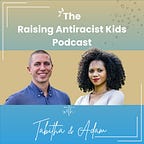Last week, the Corporation for Public Broadcasting announced their impending closure due to the withdrawal of federal funding. Among those hardest hit are stations in rural areas where access to news is already limited.
Campaigns to ban books have removed access to books that reflect the lives of queer kids, kids of the global majority* and many other kids whose experiences may not reflect dominant white, hetero-centric narratives.
And the list goes on: The calls to defund the Department of Education, universities capitulating to administration interference, educators having less access to key data that drive school improvement, and the actual defunding of any DEI programming. These are an attempt to rob our children of the types of education they deserve and leave them with less resources and pathways to the truth.
Almost daily, this administration attempts to diminish trust in knowledge, science and education by firing scientists, defunding research initiatives and peddling disinformation for the masses. Even when the courts determine that actions or funding cuts are unconstitutional, the administration still succeeds in sowing distrust and causing chaos.
If you’re a parent like us, a parent whose goal is to raise children who are empathetic, kind, knowledgeable and equipped to tackle injustice around them, you’re probably feeling more than a bit of discomfort, fear and anxiety about the world we are raising our children in. Whether your child is in a traditional school, homeschooled, unschooled or somewhere in the middle, we know you’re here because you also respect facts, critical thinking, and thoughtful discussion, and want to raise your kiddos to do the same.
So where does that leave us? What do we do as we are increasingly surrounded by attempts to devalue education while centering disinformation?
Even though we have seen different aspects of what’s happening now, we’ve never faced anything like their Flood the Zone strategy. So we offer the following 6 reminders for you to experiment with as you find the right pathway for you and your family. We also offer some resources for your own education.
Social media and AI are fun — Try not to make them your only news source
The first building block of antiracist parenting is Continuous Learning for parents. It’s on us to educate our kiddos from an informed perspective. This is something we already know but sometimes we need a reminder–all social media platforms offer bite-size bits of entertainment, news and analyses that can keep us scrolling. Listen, we’ll be the first to tell you that, after an especially exhausting bedtime routine with our two kids, we indulge in more than our fair share of scrolling and giggling and worrying ourselves. We’re human and we’re parents and we’re busy. And that’s totally fine. Social media also plays an important role in learning–you may have found out about our work from social media. But social media is designed to limit us to a snippet-like mode of information-intake/enjoyment. The same goes for AI summaries, which only give high-level overviews that omit real learning, and are even sometimes incorrect. Social media and AI are useful for an overview, but we encourage checking links, reading articles, and fact checking for yourselves.
Tabitha here: I’m going old school with books–actually printed on paper. I’ve set a goal for myself of reading 3 pages of 3 different books everyday. I’m too tired in the evenings so I usually do it in the mornings before the kids wake up. I try to not feel pressured to sit and read a whole book in one sitting. I would recommend setting mini realistic goals for yourself that can help you stay informed as well as not exhaust you as a parent.
Train yourself to detect emotional manipulation in the news
Amidst these assaults on education and facts and science, we also need to deal with some news outlets that depend on clicks and views as they design headlines and write articles. It’s a part of the capitalist world we live in. With social media, the pathways to information are both democratized by the sheer number of voices, and monetized because of the billionaires who own some news and social media platforms. So where does that leave us? We still need to read and trust some news sources. But take notice of when your heart beat is quickening, when your hands may start shaking, when your head may feel hot because of something you’re reading. Train your body and your mind to appreciate facts as they are without the sensational aspect attached. Do the same for your kids, especially your older kids who may be reading the news on their own. Though imperfect for sure, we like NPR, DemocracyNow and Zeteo, and we also recommend visiting various sites to verify and see multiple perspectives on a story.
Strong families, smarter communities — support your library
Adam here: We often visit our local library on weekends and our kids are really into requesting the books in series they love. We often leave the library with a hefty bag full of books for the family. This accomplishes a few things for our family. It raises kids who love reading. It teaches kids about the necessity of public institutions like libraries. It supports libraries and enables them to report that people still need the types of books we want our kids to read; books centered on justice, love, peace and community.
Show up. Join in. Share with others. Raise kids who care about community
Tabitha here: A few years ago, I helped found a steelpan group in our local community as part of a community based organization dedicated to education and equity. I did this not only to share Trinidadian culture, but also to help create spaces where kids and adults can interact, share stories and skills, and build knowledge together. Our son plays with the band and is able to see the importance of connecting with our Trinidadian culture as well as building relationships with fellow band members from different schools and neighborhoods. I’m constantly reminded of the need to invest in those around us, the people, the services, the institutions in our immediate community and to model for our kids what community looks like. When all else fails, it’s helpful to teach our kids the power of a community, people that can lean on us when needed. Part of this war on truth is a desire to isolate us from each other so that people get lost in pits of disinformation. When families build in-person community, we build connections with each other to break cycles of isolation.
Science and History matter
Adam here: It’s essential that we model for our kids respect for science and history. The scientific method and historical discourse offer essential starting places for teaching how to question and interrogate power. Science involves rigorous practices that do not assume but rather examine and unveil patterns and themes. Try to teach your kids to recognize the difference between science and pseudo-science, as much as you are able. Teach your kids the difference between factual history and white-washed history. Try to teach them how to do research, and do research together. Is the history they’re learning being told from the perspective of the oppressor (hello, Christopher Columbus!) or from those who were oppressed (queer people, people of the global majority*, survivors, etc)? It’s as important to teach kids who to trust as it is for them to develop their own skill of learning who deserves that trust. As we previously noted in other articles, we use Snopes.com often for fact checking.
Teach children to get comfortable with sticking out
A desire to fit in is actually developmentally normal for children, especially during the awkward pre-teen and teen years. But this moment in history requires us to take a stand when we are surrounded by disinformation, lies, actual harm and fascism. Let’s help our kids develop a strong inner moral compass so that they don’t cower in the face of injustice. This is especially true for kids with privilege who have less to lose. Though all of us will suffer from these attacks on education, facts and science, the reality is that families with more financial resources and more racial privilege (white families) may have more options than others. We need to call out the growing wealth gap, racial disproportionality, and deepen our involvement in cross-racial, cross-class organizing groups. We need those folks with privilege to come to the front of the line to defend democracy for everyone. The last building block of antiracist parenting, Parent/Caregiver Modeling, stresses the need to model resistance for our kids. That can look like going to protests with kids and even modeling how to disagree respectfully within your family.
Connect kids with the power of their own history
Adam: Many of us have stories of resilience, triumph and power in our families. No matter your race or ethnicity, your family’s story matters (we say this because whiteness actually encourages white people to ignore our unique identity for the sake of becoming white and othering people of the global majority). Teaching little ones that they carry these traits in their lineages can help them develop a strong sense of self and responsibility in these troublesome times. This moment calls on all of us parents to equip our children with the necessary tools to combat this war on truth that threatens to capture their young minds. The ultimate goal of those in power, after all, is to raise generations of children who are ill-informed, unequipped to tackle the fight ahead of them and too distracted to care. That’s not about to happen on our watch, right? Try to talk with your kids about their history, their ancestors and who fought before us for the freedoms we now have that are being threatened.
RESOURCES
FOR ADULTS:
On Tyranny-Twenty Lessons From The Twentieth Century by Timothy Snyder
Get banned books for you and your children. Find a list here.
FOR KIDS:
We Care: A First Conversation About Justice by Megan Madison and Jessica Ralli (ages 3-10)
Stamped (graphic novel) by Ibram X. Kendi (pre-teen and teen)
That’s it for us for today. We are in worrisome times and sometimes it feels glib to say “we got this!”. But we want to assure you that we have each other. We have our core moral groundings. We have people power and we will keep fighting for the soul of our children and the future of our country. If you need to and with consent, ask for a hug from a trusted friend, co-parent, partner, etc.
Thanks for reading and get some rest, okay?
Tabitha & Adam
* We use the term “people of the global majority” instead of “people of color” or “minority communities”. Language is not perfect and there are pros and cons to this term. Read more about it here and let us know what you think.












